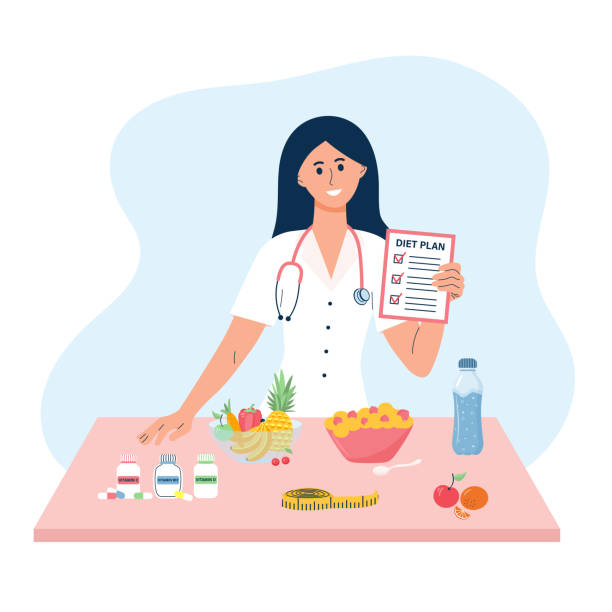Making changes to your diet can be tough, but many people find it helpful for losing weight. You might have questions about how to start or what types of foods to eat. Below, you will find answers to common questions about diet changes and weight loss.
Key Takeaways
- Diet Changes Matter: Changing what you eat has a big effect on weight loss.
- Portion Control: Eating smaller portions can help you lose weight.
- Healthy Foods: Focus on fruits, vegetables, lean proteins, and whole grains.
- Be Patient: Weight loss takes time and patience.
- Stay Active: Exercise is important for weight loss and overall health.
For those looking to enhance their weight loss journey, explore the benefits of B12 injections that can support your energy levels.
Why Change Your Diet for Weight Loss?

Changing your diet can help you lose weight because it helps you eat fewer calories. Eating the right foods can support your body and keep you feeling full. You want to make sure you are getting good nutrients, not just cutting calories.
What Foods Should You Eat?
Eating the right foods is key. Here are some you should focus on:
Fruits and Vegetables
Fruits and vegetables are low in calories and high in nutrients. They help fill you up without adding too many calories. Try to eat a variety, like apples, carrots, broccoli, and spinach.
Lean Proteins
Proteins are important for building muscle. Lean meats, fish, eggs, and beans are great options. They can help keep you feeling full, so you don’t snack as much.
Whole Grains
Whole grains like brown rice, quinoa, and whole-grain bread are healthier than white bread or white rice. They provide energy and keep you full longer.
| Food Group | Examples | Benefits |
|---|---|---|
| Fruits | Apples, Berries, Bananas | Low in calories, high in fiber |
| Vegetables | Spinach, Broccoli, Carrots | Nutrient-dense, filling |
| Lean Proteins | Chicken, Fish, Beans | Supports muscle growth, satiety |
| Whole Grains | Quinoa, Brown Rice | Provides energy, keeps you full |
How Do You Control Portions?
Portion control is important when you change your diet. Here are some tips:
Use Smaller Plates
Using smaller plates can trick your brain into thinking you are eating more. This simple change can help you eat less without feeling deprived.
Measure Your Food
Using measuring cups or a food scale can help you understand portion sizes. This helps you know how much you are really eating.
Listen to Your Body
Pay attention to your hunger cues. Eat when you are hungry and stop when you are full. This practice can help you eat the right amounts.
What Drinks Should You Choose?
What you drink matters just as much as what you eat. Water is the best choice. It has no calories and keeps you hydrated.
Limit Sugary Drinks
Drinks like soda and sweet tea can add a lot of empty calories. Try to limit these or cut them out completely.
Choose Healthy Options
If you want something different, try herbal tea or sparkling water with a splash of lemon. These can be tasty and refreshing.
How Can You Stay Motivated?
Staying motivated is important for making lasting changes. Here are ways to keep your spirits high:
Set Realistic Goals
Start with small, achievable goals. Celebrate your wins, no matter how small. This will help you stay motivated.
Keep a Food Diary
Writing down what you eat can help you stay accountable. It also helps you see patterns in your eating habits so you can adjust as needed.
Find Support
Having friends or family support you can make a big difference. You could even join a group or find an online community. Sharing your struggles and successes can keep you motivated.
- Stay Consistent: Consistency is key in your dieting efforts.
- Reward Yourself: Treat yourself for reaching small milestones.
- Educate Yourself: Understand what works for your body.
For additional resources on maintaining a healthy weight, visit our weight loss services page.
What If You Have Setbacks?
Setbacks happen. It’s normal to face challenges. Here are ways to deal with them:
Don’t Be Hard on Yourself
If you slip up, don’t give up. Everyone makes mistakes. Learn from them and move on.
Review Your Goals
Take a look at your goals. Maybe they need to change. Be flexible and adjust your plan as needed.
Focus on Progress
Instead of only thinking about where you want to be, look at how far you’ve come. Celebrate your progress, even if it’s small.
How Important Is Exercise?
Exercise plays a big role in weight loss. It helps you burn calories and can speed up your progress. Here are some tips to get moving:
Find Activities You Enjoy
Choose exercises that you like. This could be walking, biking, swimming, or dancing. When you enjoy it, you are more likely to stick with it.
Aim for Consistency
Try to make exercise a regular part of your routine. Even just 30 minutes a day can make a difference.
Mix It Up
Doing different types of exercises can keep things interesting. Try strength training, cardio, or flexibility exercises.
How Can You Track Your Progress?
Tracking your progress can help you see how well you are doing. Here are some ways to do it:
Weigh Yourself Regularly
Weighing yourself once a week can help you keep track of your weight loss. Just remember that weight can fluctuate, so focus on trends over time.
Take Measurements
Measuring your waist, hips, and other areas can show changes that the scale might not reflect.
Keep a Journal
Writing about your journey helps you reflect on what works for you. It can also keep you motivated.
| Tracking Method | Frequency | Benefits |
|---|---|---|
| Weighing Yourself | Weekly | Monitors overall trends |
| Taking Measurements | Bi-weekly/Monthly | Highlights changes not shown on scale |
| Food Journaling | Daily | Increases accountability and awareness |
What Are Some Common Myths About Diets?

There are many myths about diets. Here are a few that are not true:
Carbs Are Bad
Not all carbs are bad. Whole grains and fruits are healthy and provide energy. It’s about choosing the right kind.
You Have to Eat Less to Lose Weight
You don’t have to eat less. You should focus on eating more of the right foods instead.
Diets Need to Be Extreme
Extreme diets can be hard to stick with. A balanced approach is the best way to see lasting results.
Can You Lose Weight Without Exercise?
Yes, it is possible to lose weight without exercise, but it is harder. Focus on your diet to lose weight. However, adding even a little activity can help.
How Long Will It Take to See Results?
Weight loss takes time. Usually, you can see changes within a few weeks. A safe and healthy rate of weight loss is about one to two pounds per week.
What Are B12 Injections?
B12 injections can help some people who struggle with weight loss. They support energy levels and may help with metabolism. If you think this could help you, talk to a doctor.
Why Is Hydration Important?
Staying hydrated is key for weight loss. Water helps your body function properly. It can also help you feel full, so you eat less.
How Do You Create a Balanced Meal Plan?
Creating a balanced meal plan is a great way to stay on track. Here are some steps to follow:
Include All Food Groups
Make sure to include proteins, grains, fruits, and vegetables in each meal.
Plan Ahead
Take some time each week to plan your meals. This can help you avoid unhealthy choices.
Be Flexible
Life can be busy, so be ready to adjust your plan. It’s okay to make changes as needed.
What Are Some Healthy Snack Ideas?
Snacking can be part of a healthy diet. Here are some snack ideas:
- Fresh fruits like apples or bananas
- Veggies with hummus
- Greek yogurt
- A handful of nuts
How Do You Handle Cravings?
Cravings can be tough. Here are ways to deal with them:
Wait It Out
Sometimes, cravings pass after a few minutes. Distract yourself with a walk or a hobby.
Choose Healthier Options
If you really want a snack, choose something healthier.
Practice Mindful Eating
When you eat, focus on the food. This can help you enjoy it more and recognize when you are full.
Conclusion
Changing your diet for weight loss can be a great step for your health. You can eat tasty foods, control your portions, and find ways to stay active. Remember, patience is key. Celebrate your victories and learn from your setbacks. By focusing on healthy choices, you can create a better, healthier you in Turlock, California.
With the right plan, you can achieve your goals. Stay strong, stay focused, and keep moving forward. You have the power to change your future for the better!
- According to Mayo Clinic, making long-term changes in your eating habits is the key to weight loss (source).
- The Centers for Disease Control and Prevention (CDC) reports that losing 1-2 pounds per week is a healthy and sustainable rate of weight loss (source).
- A study published in the Journal of the Academy of Nutrition and Dietetics found that people who follow a low-carbohydrate diet lose more weight than those on a low-fat diet (source).
- Another study in the Annals of Internal Medicine found that people who eat breakfast have a lower risk of obesity than those who skip it (source).
- The American Heart Association recommends limiting added sugars to no more than 6 teaspoons per day for women and 9 teaspoons per day for men (source).

